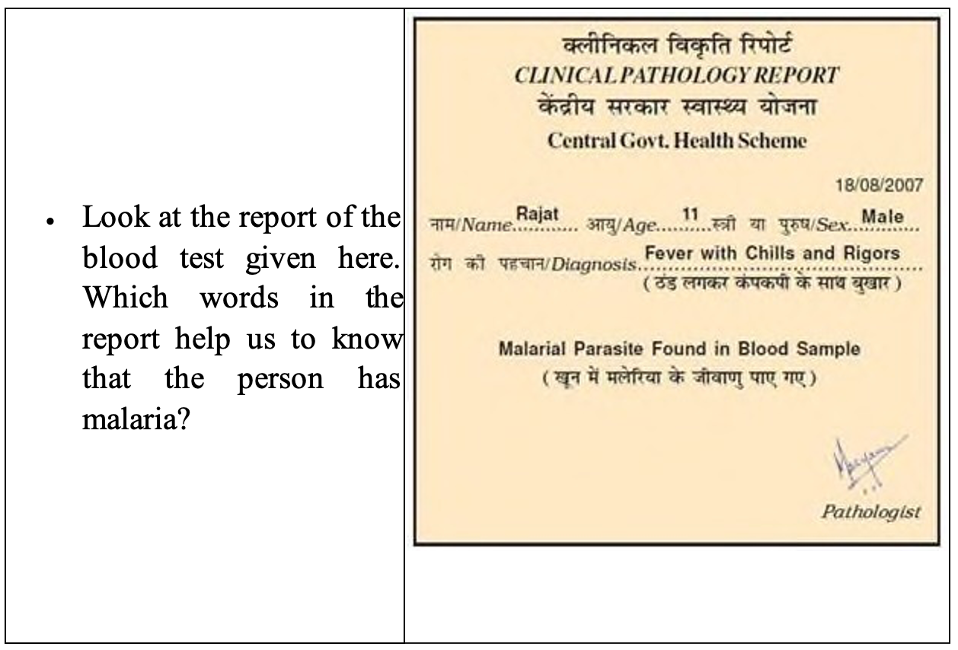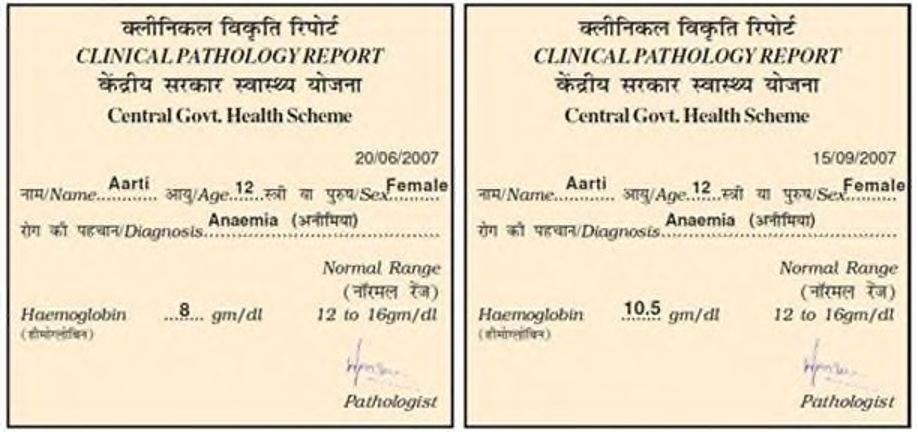NCERT Solutions for Class 5 EVS Chapter 8 A Treat or Mosquitoes
Find pdf of NCERT Solutions for Class 5 EVS Chapter 8 A Treat for Mosquitoes prepared by expert teachers. All the questions asked in the exercise of A Treat for Mosquitoes
are solved with the required details.
A Brief Introduction to Chapter 8 A Treat for Mosquitoes
Chapter 8 A Treat for Mosquitoes- A Treat for Mosquitoes educates kids about the dangerous disease Malaria and the significance of maintaining good cleanliness in and around the classroom, as well as the precautionary precautions to take. There are also a variety of activities that need kids to learn a variety of things. Is there anyone suffering from malaria, and if so, how did they get it? Furthermore, what challenges do people confront during malaria, and a variety of other themes are covered. As a result, a learner is made aware of the malaria disease. It also informs children about malaria medications and how they are made.
Find pdf of NCERT Solutions for Class 5 EVS Chapter 8 A Treat for Mosquitoes
Page No 68:
Question Find out:
· Do you know anyone who has had malaria?
· How did they find out that they had malaria?
· What problems did they have on having malaria?
· What other diseases can be caused by mosquito bites?
· In which season is malaria more common? Why do you think this happens?
· What do you do in your house to protect yourself from mosquitoes? Also find out from your friends about what they do?

Answer:
· Disclaimer: The purpose of this question is to make the students interact actively with the people in their surroundings. This process calls for critical observance based upon which the students can draw certain conclusions. Considering the sustenance of this process of interaction the answer to this question has not been provided.
· They might have found out that they had malaria by the following observations:(i) Fever with chills and rigors(ii) Body ache and vomiting(iii) Blood test (this is the diagnostic test for malaria)
· While they suffered from malaria, they started facing problems such as fever, body ache, vomiting and weakness.
· Diseases such as dengue, yellow fever, chikungunya can be caused by mosquito bites.
· Malaria is more common in rainy seasons. This is because mosquitoes (carrier of malaria) need water to breed. They breed in the stagnant waters found in pools during the rainy season.
· We adopt the following measures to protect ourselves from mosquitoes in our house:(i) We keep our surroundings neat and clean. (ii) We don’t allow water to get collected for long time in our surroundings. (iii) We usually spray a layer of kerosene over open ditches and pools.
(iv) We use mosquito repellents and mosquito nets.
· The words “Malarial Parasite Found in Blood Sample” help us to know that the person has malaria.
Page No 70:
Question Tell:

· Look at Aarti’s blood report and find out the minimum required haemoglobin?
· How much did Aarti’s haemoglobin go up and how long did it take for that?
· What does the newspaper report say about the problems caused by anaemia?
· Have you or anyone in your family ever needed to get a blood test? When and why?
· What was found out by the blood test?
· Have you had a health checkup in your school? What did the doctor tell you?
Answer:
· The minimum required haemoglobin is 12 gm/dl (gm is grams; dl is deciliter)
· Aarti’s haemoglobin went up by 2.5 gm/ dl and it took 2 months and 25 days for that.
· The newspaper report says that: Anaemia affects the physical and mental health of children. Children suffering from anaemia do not grow well and their energy levels are also low. Their ability to study properly also gets affected.
· Disclaimer: This question aims at making the students interact with their family members to increase their knowledge and impart learning skills. Considering the sustenance of this process, the answer to this question has not been provided.
· Disclaimer: This question aims at making the students interact with their family members to increase their knowledge and impart learning skills. Considering the sustenance of this process, the answer to this question has not been provided.
· Disclaimer: This question calls for the process of one’s own observation and gathering information. Considering the sustenance of this process, the answer to the question has not been provided.
Page No 71:
Question Find Out:
· Ask a doctor or elders about the food items which contain iron.
Answer:
· Disclaimer: This question calls for the process of one’s own observation and gathering information. Considering the sustenance of this process, the answer to the question has not been provided.
Page No 72: Question Find Out and Tell:
· Have you seen any poster like this put up anywhere?
· Who do you think put up such posters, or give ads in the newspapers?
· What are some of the important points given in the poster?
· Why do you think pictures of a tank, cooler and pits are shown in the poster?
Answer:
· Disclaimer: This question calls for the process of one’s own observation and gathering information. Considering the sustenance of this process, the answer to the question has not been provided.
· The Government or other people involved in non-governmental organizations (NGOs) put up such posters on walls and give ads in the newspapers to make public aware about the control measures that should be taken for controlling diseases or other problems.
· Some of the important points that are given in the poster are:(i) Name of the diseases spread by mosquitoes(ii) Measures that should be taken to prevent growth of mosquitoes in our surroundings
· Tank, cooler and pits are the sites of water collection. These are the favourable sites for mosquito breeding and multiplication. These pictures are shown to remind us again and again that we should not allow water to get collected for long time in our surroundings.
Question Think:
· Why do you think it talks about putting fish in the tank? What do you think the fish eats?
· What will happen when oil is spread on the water?
Answer:
· Disclaimer: The purpose of this section is to make the students interact actively with the people around them and their surroundings. The process calls for critical observance based upon which they can draw certain conclusions. Considering the sustenance of this process of interaction the answer to this question has not been provided.
Page No 73:
Question Find Out:
· Which diseases are spread by flies and how?
Answer:
· Disclaimer: This question calls for the process of one’s own observation and gathering information. Considering the sustenance of this process, the answer to the question has not been provided.
Question Mosquito Check: Divide your class into two or three groups. Each group will go around to check one area in school or around it. It must carefully note if water has collected anywhere, and mark where it finds stagnant water.
Pot Cooler Tank Any open space in the
school ground Gutter Any other place________
· Since how many days has water collected there?
· Has it caused any problem in the area?
· Who is responsible for keeping these places clean?
· Who is supposed to get the gutters and drains repaired?
· Can any larvae be seen in the collected water?
Answer:
Disclaimer: This section involves the process of one’s own observation and gathering information. Considering the sustenance of this process, sample answers have been provided for some of the given questions. These answers will aid the students in framing their thoughts and observations.
When water gets collected in a particular area, it leads to the spread of diseases and also makes the area dirty. It may also cause hindrance to the passersby.
The cleaners and sweepers from the Municipal corporation or the town
/village panchayat is responsible for keeping the places clean.
The Municipal corporation or the town /village panchayat is responsible for getting the gutters and drains repaired.
Question Make a Poster:
· In your group, make a poster with a message to keep the cooler, tank, drains and the area clean (wherever water collects). Put up your poster in and around your school.
· Find out who is responsible for keeping the area around your school clean. Write a letter from your class, reporting your findings and suggestions. Find out to whom the letter should be written and to which office it should be sent.
Answer:
Disclaimer: This section involves the process of one’s own observation and gathering information. Considering the sustenance of this process, the answer to the question has not been provided.
Page No 74:
Question Tell: Is there a pond or river around your house or school? Go and look around and observe these things:
· Can you see algae in or around the water?
· Where else have you seen algae?
· Are there plants growing on the side or in water? Find out their names. Draw some of these in your note book.
· Do you think these were planted by someone or did they grow on their own?
· What else can you see in water? Make a list.
Answer:
Disclaimer: This section involves the process of one’s own observation and gathering information. Considering the sustenance of this process, sample answers have been provided for some of the given questions.
These answers will aid the students in framing their thoughts and observations.
When the water gets stagnant for a very long time, the algae start growing in them. This water also contains tiny creatures that cannot be seen by simple eyes.
Algae can also be seen on walls, buildings and pipelines which are continuously in contact with water.
When the water is stagnant for a long period, then other plants start to grow on its periphery, these plants are not planted by anyone but they grow by themselves when their seeds get settled at such places.








